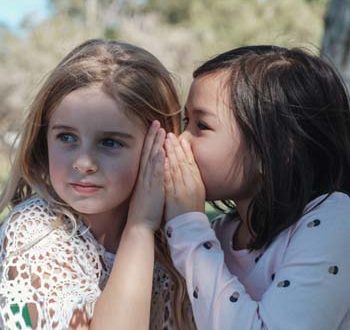
It is human nature to presume that when something is password protected that it is secure and safe. We regularly remind parents and the children we talk to that safety settings in general, are a step in the right direction but they are not a 100% guarantee of safety. One new trend we are noticing is the propensity for children and teens to share their passwords with friends and be completely unaware of the implications of sharing such personal details. So, what do you need to do to make sure your child knows about the importance of keeping their passwords private?
It sounds pretty obvious to say that children don’t treat passwords with the same importance as adults do, but this is certainly true when it comes to passwords for social media accounts and messaging apps. Where friendships are concerned children can feel so strongly that their friends can be trusted beyond question. However it is particularly important where communicating online is concerned, that you regularly remind your child of the importance of keeping their passwords private. Talk to them about the long term implications of what is shared how either profiles and content that they post now, or information they share with their friends today, cannot be easily removed or deleted. At Zeeko we use the T-shirt Rule to explain this in particular to the primary school children we present to. Essentially we ask the children to ask themselves this simple question before they post something online: ‘Would I be happy to wear on the front of a t-shirt what I am about to post?’ This certainly makes the children think twice before posting. This concept is linked to passwords by the common theme of privacy. Remind your child, be they be younger or a teenager, that there is certain information that should stay private and that social media passwords are definitely one of these. It is important that your child realises that if something is posted via an account that they have, they are responsible. While they may feel that it is ok that their friend is posting something on their behalf because they have given them their password that content is still being sent from their account. For example, they might write something that the account owner would never even think, and it would be very hard for the person whose account it is to prove they did not write it. A friend could write something about another child in the class as a joke, and that could be impossible to take back.
Another good analogy to use, particularly with older children is that of a pin code for a visa card, for example. Talk to your child about how you would never divulge your pin number for your visa debit or credit card to anybody else, and that passwords for social networking or messaging apps should not be given to anyone, even someone they know and trust. Boundaries in the online world can certainly be a lot less clear than when they are offline. At our presentations in primary and secondary schools we regularly remind pupils of all ages the importance of having the same boundaries in place when they are online as they do when they are offline. It is important to be cautious and not to take unnecessary risks. Sharing passwords means that you no longer have full control over what is posted online, in your name.
It’s often the case, depending on the stage of maturity of your chid that they may feel that their friends and peers have a better understanding of how they interact with the world around them than you, as their parent! It is important though that they understand that it is not appropriate to be sharing passwords with friends no matter how close they are to them!

